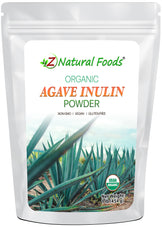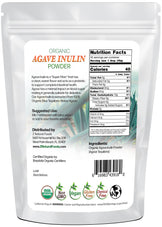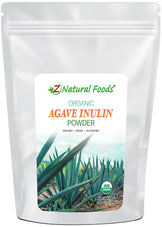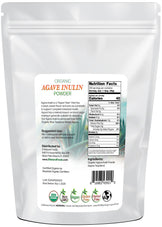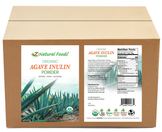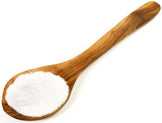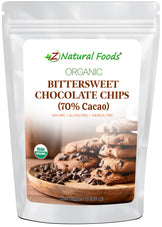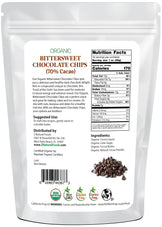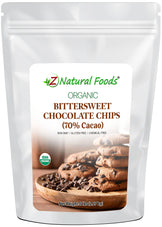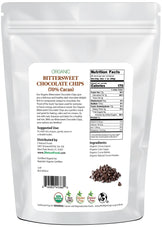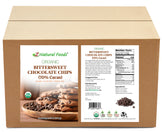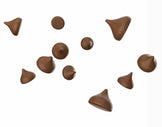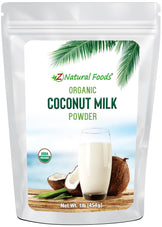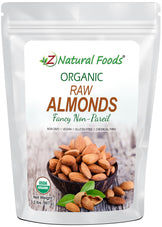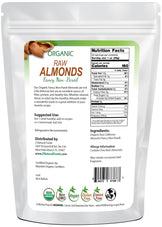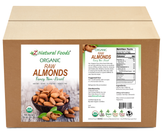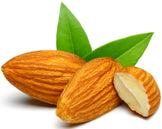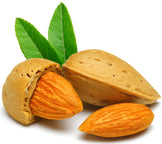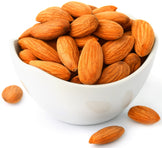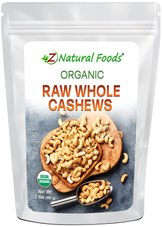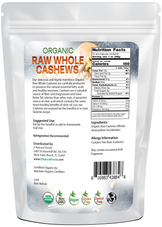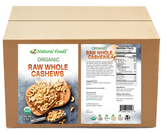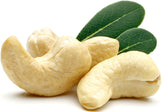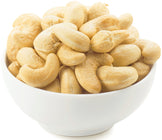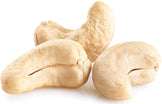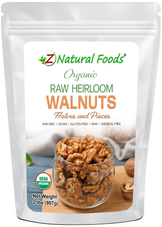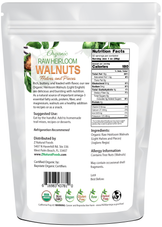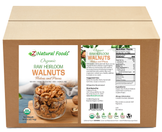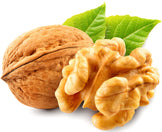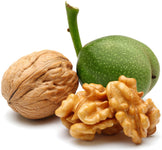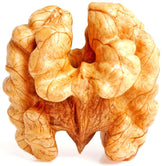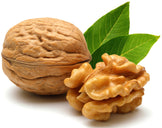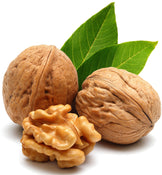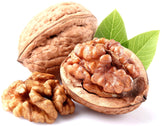Description
Description
Have you ever wondered why agave inulin is so popular?
Where it comes from? Or how is agave inulin best used?
And, what actually is agave inulin?
In this brief article, we are going to answer all the most commonly asked questions we receive about agave inulin and give you a simple, easy, great-tasting recipe.
What is Agave Inulin Powder?
Agave inulin powder is a natural sweetener with a low glycemic index, derived from the agave plant native to Mexico. Inulin is a fiber taken from the roots of the agave plant, dried and powdered to make agave inulin powder. This powder is an excellent alternative to sugar or honey.
Let’s now review more common question about Agave Inulin Powder:
Is agave inulin healthy?
Agave inulin has a lower glycemic index compared to sugar and honey. Consequently, it is a favorite among people looking for a natural, low sugar lifestyle, and very popular among paleo and keto diets.
With a typical serving containing no fat and no protein, a serving of agave inulin contains 5 grams of carbohydrates and a whopping 4 grams of fiber – giving agave inulin only 1 net gram of carbohydrates.
Additionally, the fiber in agave inulin may support healthy bacteria that may protect your digestive tract from harmful bacteria, possibly supporting a healthy immune system. Agave inulin contains vitamins such as:
- B12
- Thiamin
- Folate
Probably because of the high fiber content, agave inulin powder makes you feel full after taking it, reducing your appetite, thereby possibly helping reduce weight. It also supports healthy bowel movements.
One of the critical health benefits of agave inulin is that it slows digestion. In essence, this may slow down the release of sugar, possibly preventing blood sugar spikes.
Does agave inulin raise blood sugar?
Largely because agave inulin is so high in fiber, agave inulin won’t raise your blood sugar the same way sugar does. Your body can’t break down fiber, so it won’t spike your blood sugar levels like sugar and most other carbohydrates do.
In fact, a recent study conducted by the Nutrition and Dietetic Research Group at the Hammersmith Hospital in London, UK, found that inulin may have unique metabolic effects that are of particular benefit to people at risk of diabetes.
Their study supported the claim that the fiber in inulin may slow the digestion process, possibly supporting a healthy blood sugar. Since the blood sugar may be released in smaller amounts, this may result in a lesser spike in blood sugar levels.
Is agave inulin a prebiotic or a probiotic?
Agave inulin is a prebiotic as it contains rich deposits of fiber that the healthy bacteria feasts on and may protect your digestive tract.
Probiotics are substances that contain living bacteria that you ingest to add to the population of good bacteria in your body. On the other hand, as is the case with agave inulin, prebiotics provides the support the good bacteria needs to flourish inside your body.
Your stomach can’t digest or absorb inulin, so it will make its way to the colon and the beneficial bacteria. Additionally, agave inulin may support:
- The stimulation of free fatty acid production
- Healthy glucose levels
- The increased absorption of minerals such as sodium and magnesium
Is agave the same as inulin?
Agave is a desert plant tracing its origin in Mexico. Many products are produced from agave, such as tequila and sweet syrup (from the blue agave plant).
Meanwhile, inulin is a type of fiber derived from the blue agave plant. Inulin is produced by extracting the membrane and then spray-drying it to form the dry powder agave inulin.
Moreover, agave inulin is different from the other inulin types because it has a unique botanical origin and chemical structure.
Is organic agave inulin safe?
Yes, organic agave inulin is safe for use. It is a naturally occurring substance that you process to produce the inulin. It is a highly nutritious substance containing a soluble dietary fiber that may support healthy gut bacteria.
Again, because agave inulin is low glycemic, it is not harmful like sugar is and will not spike your blood sugar levels the same way.
What does agave inulin taste like?
Agave inulin is a mild natural sweetener and it will not change the taste of the recipe. Organic agave inulin is a natural carbohydrate sweetener made of fructose molecules, the same substance that makes up refined sugar. Naturally, agave inulin has a sweet taste and does taste like sugar, but it is mildly sweet since as it has lower sugar levels.
Because of this, you can use it to sweeten foods and drinks such as coffees, ice cream, frozen fruit, and salad dressings. It works best if you don’t want to change the dish’s taste radically and enjoy a lightly sweet flavor.
Keep in mind that agave inulin may thicken some recipes, so you may want to experiment with your recipes. This may occur because of the higher fiber content.
Is agave inulin Keto-friendly?
Yes, agave inulin is a keto-friendly sweetener that you should consider including in your keto diet. Although it is technically a carbohydrate that is usually heavily restricted for the keto lifestyle, agave inulin is a healthy choice since it is natural starchy soluble fiber that you would typically find in other healthy foods such as garlic, onions, and wheat. Plus, with 4 valuable grams of fiber per serving and only 1 net gram of carbohydrates, agave inulin can be safely added to a keto diet plan when consumed in moderation.
What is the best way to use agave inulin powder?
There are several ways you can use agave inulin powder:
- Use it as a sugar replacement in your favorite drink: Whether it’s a smoothie, tea, or coffee, agave inulin is a healthy natural sweetener that fully dissolves while adding starch into your diet.
- Baking: You can use it to replace sugar when baking and retain moisture in the baked food.
- Glaze meat and veggies: It adds an aspect of creamy texture to meat, and you can combine it with butter to glaze carrots and your favorite veggies.
- Medicine chaser: If you hate the aftertaste of medicine, inulin is a healthy replacement for sugar.
- Sprinkle on fruit: Add a bit of prebiotic action to a fruit salad by sprinkling agave inulin.
- Corn syrup replacement: If you warm a mixture of one cup of water to two cups of agave inulin and warm it over a bit of heat, you can use it as a healthy replacement for corn syrup after it cools down and you store it in the fridge for up to two weeks.
Keto Chocolate Mousse Recipe (with Agave Inulin):
Ingredients:
- 1 cup Organic Coconut Milk Powder
- 1/4 cup Organic Agave Inulin Powder
- 3/4 cup Organic Bittersweet Chocolate Chips (No Sugar Added)
- 2 tsp. Vanilla Extract Flavor
- 1 cup Water
- 2 tbsp. Organic Bittersweet Chocolate Chips (for topping)
- 1/4 cup Chopped Almonds, Cashews, Walnuts, or any nuts of your choice (for topping)
Directions:
- In a medium sauce pan, add coconut milk powder, agave inulin and water, mix well with whisk, cook on medium heat until become a little thick.
- Add chocolate chips, vanilla extract and whisk well until boil.
- Remove the sauce pan from heat and keep whisking for one minute.
- Transfer the mixture into dessert cups with cover and keep in the refrigerator for at least 2 hours (preferably over night before serving).
- Add chocolate chips and chopped nuts on top of the mousse when ready to serve.
- Enjoy!
References
Kunzmann, A. T., Coleman, H. G., Huang, W. Y., Kitahara, C. M., Cantwell, M. M., & Berndt, S. I. (2015). Dietary fiber intake and risk of colorectal cancer and incident and recurrent adenoma in the Prostate, Lung, Colorectal, and Ovarian Cancer Screening Trial. The American Journal of clinical nutrition, 102(4), 881-890. Retrieved June 07, 2022, from https://academic.oup.com/ajcn/article/102/4/881/4564676.
Guess, N. D., Dornhorst, A., Oliver, N., & Frost, G. S. (2016). A randomized crossover trial: the effect of inulin on glucose homeostasis in subtypes of prediabetes. Annals of Nutrition and Metabolism, 68(1), 26-34. Retrieved June 07, 2022, from https://pubmed.ncbi.nlm.nih.gov/26571012/.
Holscher, H. D., Bauer, L. L., Gourineni, V., Pelkman, C. L., Fahey Jr, G. C., & Swanson, K. S. (2015). Agave inulin supplementation affects the fecal microbiota of healthy adults participating in a randomized, double-blind, placebo-controlled, crossover trial. The Journal of nutrition, 145(9), 2025-2032. Retrieved June 07, 2022, from https://pubmed.ncbi.nlm.nih.gov/26203099/.
Dehghan, P., Gargari, B. P., & Asgharijafarabadi, M. (2013). Effects of high-performance inulin supplementation on glycemic status and lipid profile in women with type 2 diabetes: a randomized, placebo-controlled clinical trial. Health promotion perspectives, 3(1), 55. Retrieved June 07, 2022, from https://pmc.ncbi.nlm.nih.gov/articles/PMC3963683/.
Centers for Disease Control and Prevention. "Fiber Helps Prevent or Manage Diabetes." Last modified August 10, 2022. https://www.cdc.gov/diabetes/healthy-eating/fiber-helps-diabetes.html.
Future Market Insights. Agave Inulin Market. Futuremarketinsights.com. Retrieved 07 June 2022, from https://www.futuremarketinsights.com/reports/agave-inulin-market.
Academized. "Diabetes Guide: Types, Risks, Symptoms, and Management." Accessed November 15, 2024. https://academized.com/diabetes-guide-types-risks-symptoms-and-management.




